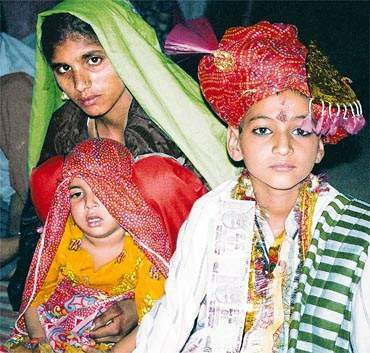Judith and I have been friends since we were 14. Our marriage, at the age of 21 in 1969, has been the longest relationship of our lives. Through the trials of raising three children, 8 years of partial separation, lots of growth challenges and changes, it is still the prism through which we view our daily existence. But this post is not about our marriage, or our relationship. It's about what that long struggle has meant to us in the context of civil rights.
Despite my excitement about the Democrat's win during the last election, I was extremely disappointed in the outcome of the California ballot initiative called Proposition 8. Voting Yes for Prop 8 added the definition to the state's constitution that "marriage" will be restricted to one man and one woman. I was disappointed because I support marriage, and I believe the benefits of same-sex marriage far outweigh the detriments, and that Prop 8 will destroy the fabric of true, consensual marriage.
My context is a combination of morality, practicality, and realism, and while I sympathize with the feeling of voters who voted for Prop 8, it's important in my mind to put things into perspective.
For the great majority of couples in the world, marriage is still a form of bondage for the women. For a large segment of world society, the wife is still legal chattel - an object of slavery - with the owner of the chattel always defined as the male member.

Polygamy is another standard accepted form of marriage in many countries. It almost always defines marriage as a relationship between one man and multiple women.
Arranged marriages, from birth is yet another.
During the days of the Khmer Rouge in Cambodia, marriages were arranged and conducted at the behest of the government for the sole purpose of increasing the workforce, and the children of those marriages were removed from the couple (who seldom were permitted to co-habitate) as quickly as feasible.
The fact that the Western countries have -- over time -- successfully re-defined a concept of marriage to include equal rights between members of the marriage is an anomaly when compared to the state of marriage in most of the world's nations.
The U.S. and other Western countries -- by moving the legal path of marriage towards equality -- has strengthened individual freedoms, so that people now have a choice to take on their roles. These countries have strengthened the fabric of society by building a more just framework for raising children, for recognizing individual and family contributions, and for rewarding functioning family structures.
But traditional marriage, as found in too many other countries, is a means of restricting the rights of a particular underclass of citizens who happen to be women.
Proposition 8 -- the constitutional amendment that has been approved by the voters of California -- runs counter to the trajectory of civil rights. By defining marriage as an
exclusive state -- solely recognized as a relationship between members of the opposite sex -- Prop 8 reinforces a status quo in which
social mores' are more important than
human rights.
It removes individual choice and it separates and castigates individuals who have freely choosen to enter into binding marital relationships. These kinds of relationships have been a constructive part of our society for millenniums, and interjecting a state-sanctioned formulation that excludes certain individuals is detrimental to the very family values these proponents profess to support.
Marriage is not simply a relationship between man and woman, and it should not be defined as such: It is a relationship between the society and individuals, shielding the relationship from state intervention and providing it with a legal framework for protecting its members for the
benefit of the society.
Proponents of Prop 8 contend that legal domestic partnership is the equivalent to a socially sanctioned and legitimized marriage. But they might also look at the historic results of similar laws that once defined separate-but-equal states in this country, and the laws of apartheid in other nations. Those histories demonstrate that when two classes of citizens are defined by the state, they result in unequal treatment and the destruction of the very institutions that the laws were purporting to protect.
Individuals of age who freely join together in a relationship to build upon family values should not be struggling with the extra weight of this civil rights fight. Our families, who are already facing so many obstacles in holding together their relationships, should not be pitted one against the other over the sexual orientation of their neighbors -- gay, straight, or otherwise. There is too much that needs to be done to improve our society for the benefit of our children.
Proposition 8 was clearly an
anti-civil rights proposition. The California state constitutional amendment that it promoted now needs to be repealed -- for the benefit of all of our families.








